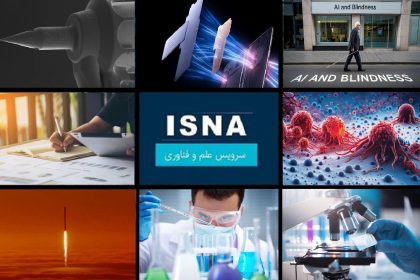In order to understand the role of DevOps in the development of artificial intelligence, we must first answer the question, what is DevOps?
What is DevOps?
Devops is a software development approach that It employs a combination of Development and Operations teams to simplify the software delivery process and improve collaboration and efficiency. This approach emphasizes automation, continuous integration, continuous delivery, and close collaboration between different roles in the software development lifecycle, enabling organizations to deliver high-quality software to customers with greater efficiency and speed.
What is artificial intelligence?
Many people do not know what artificial intelligence is and are not familiar with its equivalent words, artificial intelligence and AI. Artificial intelligence is a field of computer science whose main focus is the development and improvement of algorithms and models that are used to perform tasks that mainly require the presence of is human The main goal of Ai is to develop and build systems that are capable of thinking, learning, thinking and solving problems.
Getting to know the most important challenges of Ai
In examining the role of DevOps in the development of artificial intelligence, it is very important to know the most important challenges of Ai. Some of the most key challenges of this technology in this direction are:
- Data quality and access: Artificial intelligence models depend on high-quality and diverse data for training and validation. However, preparation and preparation of large datasets and issues of data availability and quality may be a significant challenge.
- Complexity and interpretability of models: Artificial intelligence models, especially deep learning models, can be very complex and difficult to interpret. Understanding the exact performance of these models and explaining their decision-making to other stakeholders and end users can be a challenge.
- Scalability and resource requirements: Training and deploying AI models can require significant computing resources. As AI models increase in size and complexity, organizations must consider the infrastructure and resources needed to support large-scale training and deployment, including computing power, storage capacity, and memory.
- Ethical and legal issues: Another challenge of artificial intelligence is that the use of personal data and privacy issues must be considered, to be compatible with relevant regulations and to protect user information.
- Rapidly evolving technology: The field of artificial intelligence is constantly evolving, and new algorithms, frameworks, and techniques appear on a regular basis.
- Integration with existing systems: Ai models may require interaction with legacy systems, databases, or APIs that require careful planning and integration efforts. Compatibility issues and disruption of existing work flow should be considered in the integration process.

Advantages of using DevOps in artificial intelligence
In examining the role of DevOps in the development of artificial intelligence, it should also be noted that the benefits of using DevOps in artificial intelligence are significant and applying its principles in the development of artificial intelligence leads to several benefits, some of which are:
- Increase cooperationDevOps promotes collaboration and communication between different teams involved in AI development, such as data scientists, engineers, and operations. This collaborative approach leads to knowledge sharing, strengthening teams, resulting in improved Ai development processes.
- Reduce time to market: DevOps emphasizes automation and continuous delivery, enabling AI models to be deployed rapidly and iteratively. By automating the build, test and deployment processes, organizations can significantly reduce the time required to develop and deliver AI solutions and gain an advantage in the competitive market.
- Improve quality and reliability: Using DevOps principles, such as automated testing and continuous monitoring, improves the quality and reliability of artificial intelligence models. Organizations can identify and fix problems in the early stages of development and provide more robust and sustainable AI solutions.
- Scalability and flexibility: DevOps principles enable scalability and flexibility of Ai infrastructure and resources. By using cloud-based platforms, containerization, and code-based infrastructure principles, organizations will be able to easily increase or decrease the scale of infrastructure and AI models as needed.
- Increased security: Another benefit of using DevOps is increased security. In fact, by integrating security considerations from the early stages of development, organizations can identify and counter potential vulnerabilities and threats and ensure the security of AI systems and data.
- Continuous improvementBy collecting user feedback and monitoring system performance, organizations will be able to improve their AI models and infrastructure and deliver better versions over time.
- Cost optimizationBy automating and optimizing resource usage and reducing development cycle time, DevOps helps organizations optimize costs associated with AI development.

Devops techniques and tools in artificial intelligence development
The last topic that stands out in the review of the role of DevOps in the development of artificial intelligence is the techniques and tools of DevOps for the development of artificial intelligence, which include the following:
- Version control systems: Tools like Git allow teams to collaborate on AI projects, track changes, and manage code repositories. Version control systems ensure the correctness of code, facilitate collaboration, and provide the ability to revert to previous versions if needed.
- continuous integration (CI)CI tools such as Jenkins, Travis CI and GitLab CI automate the process of building, testing and integrating code changes. They ensure that changes made by different team members can be continuously integrated and tested, which leads to reduced integration problems and improved code quality.
- containerization: Tools like Docker and Kubernetes are used for containerization in Ai development. Containers encapsulate AI models, dependencies, and configurations, enabling deployment, scalability, and portability across environments.
- Configuration Management: Tools like Ansible, Chef, and Puppet help manage and automate the configuration of Ai infrastructure and environments. They enable seamless and reproducible setups that make it easy to deploy and manage AI applications in different environments.
- Continuous Deployment (CD): CD tools enable the automatic deployment of AI applications in production environments after passing the required tests. Tools like Jenkins, GitLab CI/CD, or AWS CodePipeline automate import and deployment in real-time, reducing time-to-market for Ai solutions.
- Infrastructure as Code (IaC)Devops tools such as Terraform and AWS CloudFormation help deploy and manage AI infrastructure using code. Infrastructure-as-code ensures integrity, scalability, and repeatability of infrastructure configuration and eases the management of complex AI systems.
- Automated test: In terms of the role of DevOps in the development of Ai, we will definitely come across automatic testing frameworks and tools such as pytest and TensorFlow’s tf.test and Selenium, which perform the testing of artificial intelligence models and programs automatically. Automated testing improves code quality, functionality, and performance, reducing manual effort and increasing reliability.
- Monitoring and recording events: Tools such as Prometheus, the ELK suite (Elasticsearch, Logstash, Kibana) or AWS CloudWatch provide monitoring and event logging capabilities for AI applications. They help monitor performance metrics, identify anomalies, and troubleshoot problems, providing optimal performance and reliability.
- Collaboration and communication toolsCollaboration tools such as Slack, Microsoft Teams, and Jira facilitate communication, management, and collaboration among team members on AI projects. These tools improve coordination, knowledge sharing and project visibility.
- Cloud platforms: Cloud providers such as AWS, Azure, or Google Cloud offer AI-related services and infrastructure, including Ai model training frameworks, data storage, scalable computing resources, and deployment options. The use of cloud platforms simplifies the development and deployment processes of artificial intelligence.
These are just a few examples of DevOps tools used to develop artificial intelligence. The choice of tools depends on the specific needs and preferences of the development team and the AI project.
RCO NEWS

















